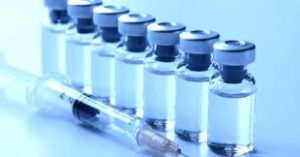PA Health Policy Update for the Week of August 23-27
The following is an update of selected state health policy developments in Pennsylvania for the week of August 23-27, 2021. (Some of the language used below is taken directly from state documents.)
The Wolf Administration
The Wolf administration announced that Pennsylvania’s opioid disaster declaration ended on August 25, 2021 after the General Assembly declined to extend it. Learn more from this Wolf administration news release.
General Assembly 
The Senate Health & Human Services and Aging & Youth committees held a joint hearing with the House Aging & Older Adult Services and Human Services committees to discuss the Department of Human Services’ intent to contract with the company Maximus as its independent enrollment broker and the impact this would have on seniors and adults with disabilities. Testimony offered to the committee and a video transcript may be found here.
Next week the House Health Committee will hold a public hearing on the end of Pennsylvania’s opioid emergency declaration, which officially concluded on August 25, and examine potential next steps. The hearing will take place on Wednesday, September 1 at 1:00 p.m. and will be live streamed here.
Department of Health
- As of August 23, 2021, the Secretary of Health has terminated a November 2020 order calling for the reduction of elective procedures in areas of low acute-care treatment capacity.
- The Department of Health has sent a warning to health care providers urging them to stop using and discard a specific commercial ultrasound gel that may be contaminated and contain a bacteria that can cause infections. See the notice here.
- The Department of Health’s Health Advisory Network has issued a notice documenting increases in reported cases of gonorrhea and syphilis in calendar year 2020. The notice also includes testing, treatment, and prevention recommendations.
- The Department of Health has issued a notice through its Health Alert Network explaining that Pennsylvania experienced an increase of hepatitis A cases from 2018 to 2019, with more than 650 cases reported in 2019. Since then, hepatitis A cases decreased substantially in 2020 but have started to increase again in 2021. Since 2018, 80 percent of these person-to-person outbreak case patients have been hospitalized and 15 patients have died. Since 2018, 56 percent of cases report using drugs and/or experiencing homelessness. The department’s notice offers recommendations for health care providers. Read it here.
- The Department of Health has issued an advisory warning health care providers that some people are using the preparation Ivermectin to treat and prevent COVID-19. Ivermectin, the advisory warns, is a medication primarily used to treat animals and has not been approved by the FDA to treat or prevent COVID-19. The notice includes recommendations for health care professionals and the public. Find it here.
Department of Human Services
- DHS’s Office of Mental Health and Substance Abuse Services (OMHSAS) has published a bulletin to update the guidelines for payment of behavioral health services delivered using telehealth technology previously issued in OMHSAS-20-02 Guidelines for the Use of Telehealth Technology in the Delivery of Behavioral Health Services. Find the bulletin here.
- DHS’s Office of Child Development and Early Learning has announced that the suspension of certain child care regulations during the COVID-19 emergency will end on September 30 and that those regulations will again apply to child care programs and facilities. Learn more about which regulations are affected in this DHS announcement.
 Department of Drug and Alcohol Programs
Department of Drug and Alcohol Programs
The Department of Drug and Alcohol Programs has released a report addressing the need to update existing client record policies to address barriers for individuals seeking treatment for substance use disorder and to integrate better the drug and alcohol treatment system with other health care services. Learn more from this announcement about the report and from the report itself.
COVID-19: By the Numbers
- As it has in recent weeks, the daily number of new COVID-19 cases continued to rise during the past week.
- Similarly, the number of deaths, while slightly higher during the past week, remains far lower than when comparable numbers of new cases were being reported in the spring.
- For the week of August 13-19 the state’s overall COVID-19 test positivity rate was 6.9 percent, up from 6.0 percent last week and the sixth consecutive week with an increase.
- In Pennsylvania, according to the CDC’s COVID Data Tracker, no counties had low or moderate rates of community transmission during the week of August 19-25. Seven counties – Bradford, Centre, Clinton, Lackawanna, McKean, Pike, and Tioga – had substantial rates of community transmission and the state’s 60 remaining counties had high rates of community transmission.
- The number of Pennsylvanians hospitalized because of COVID-19 rose 26 percent in the past week; the number on ventilators because of the virus rose 23 percent in the past week; and the number in hospital intensive care units has risen 16 percent during the same period of time.
- According to the state’s revised figures, 65.3 percent of Pennsylvanians 18 years of age and older are now fully vaccinated – 5.93 million people – up from 64.7 percent last week. Only 10,000 Philadelphians and 68,000 other Pennsylvanians completed a vaccine regimen in the past week.
Pennsylvania Health Care Cost Containment Council (PHC4)
PHC4 has posted data on the number of cancer surgeries performed in Pennsylvania during the state’s 2019-2020 fiscal year. For background information about the report and links to the data, go here.
 Around the State
Around the State
- What is a medical exemption from a COVID-19 vaccine? The Philadelphia Inquirer tries to explain.
- Last week we reported in this space about hospitals in the Philadelphia area offering large signing and retention bonuses to nurses. The same thing is happening in southwestern Pennsylvania, the Pittsburgh Tribune-Review reports.
- Pennsylvania health care providers are still deciding about whether they will require their employees to receive COVID-19 vaccines. PennLive sampled a number of providers on their current positions.
- Have financial incentives helped induce people to seek out COVID-19 vaccines? At least one such incentive – a lottery in Philadelphia – did not, according to researchers. KYW radio tells the story.
- Nurses are on the front lines in caring for COVID-19 patients. The York Daily Record shares reflections on this duty from a few central Pennsylvania nurses.
 The Wolf administration has directed vaccine providers to support COVID-19 vaccination clinics and has introduced a free COVID-19 testing program for schools across the state. Learn more from
The Wolf administration has directed vaccine providers to support COVID-19 vaccination clinics and has introduced a free COVID-19 testing program for schools across the state. Learn more from  Department of Human Services
Department of Human Services Department of Health
Department of Health Department of State
Department of State  General Assembly
General Assembly Department of Human Services
Department of Human Services Pennsylvania Health Care Cost Containment Council (PHC4)
Pennsylvania Health Care Cost Containment Council (PHC4) Department of Drug and Alcohol Programs
Department of Drug and Alcohol Programs